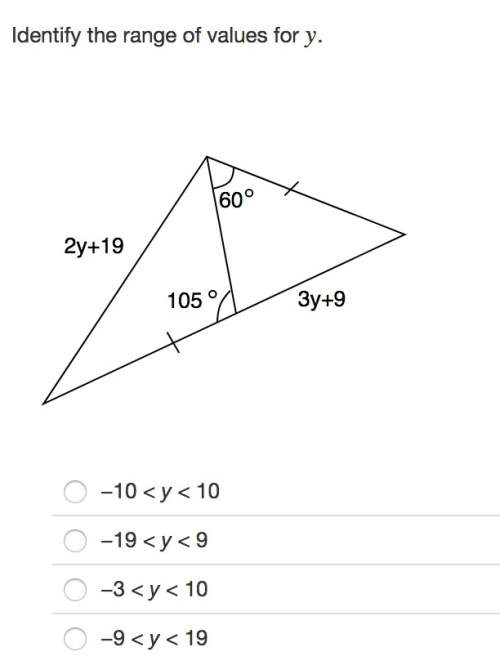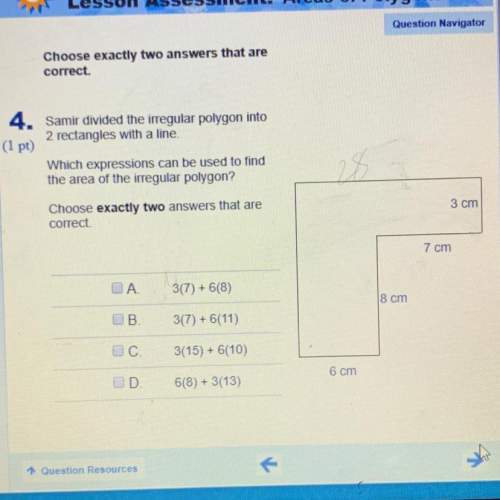Three consecutive even numbers have a sum between 84 and 96.
a. Write an inequality to find th...

Mathematics, 24.03.2020 23:13, jessezarate7129
Three consecutive even numbers have a sum between 84 and 96.
a. Write an inequality to find the three numbers. Let n represent the smallest even number.
b. Solve the inequality.
a. 84 < n + (n + 2) + (n + 4) < 96
b. 26 < n < 30
a. 84 ≤ n + (n + 2) + (n + 4) ≤ 96
b. 78 ≤ n ≤ 90
a. 84 < n + (n + 1) + (n + 2) < 96
b. 27 < n < 31
a. n + (n + 2) + (n + 4) < –84 or n + (n + 2) + (n + 4) > 96
b. n < –30 or n > 31

Answers: 2
Other questions on the subject: Mathematics

Mathematics, 21.06.2019 19:00, Nerdymania
2pointswhich of the following appear in the diagram below? check all that apply. d a. zcdeов. сеo c. aéo d. zdce
Answers: 1

Mathematics, 21.06.2019 20:30, kevinseven23
Write the summation to estimate the area under the curve y = 1 + x2 from x = -1 to x = 2 using 3 rectangles and right endpoints
Answers: 1

Mathematics, 21.06.2019 21:40, jacobasencio23
Use sigma notation to represent the following series for 9 terms.
Answers: 2
Do you know the correct answer?
Questions in other subjects:



History, 19.08.2020 21:01

Mathematics, 19.08.2020 21:01

Mathematics, 19.08.2020 21:01












